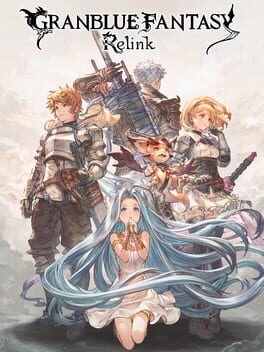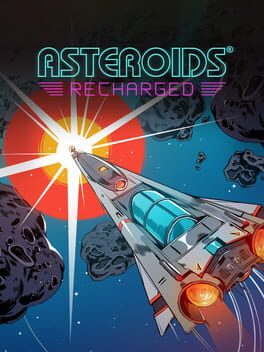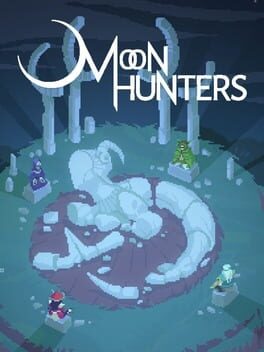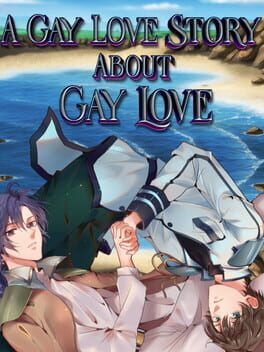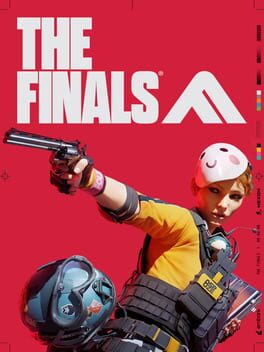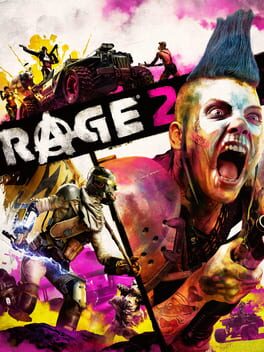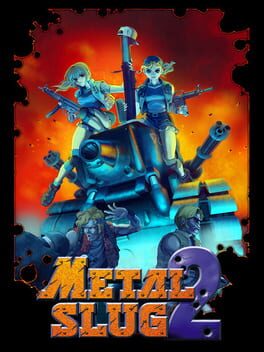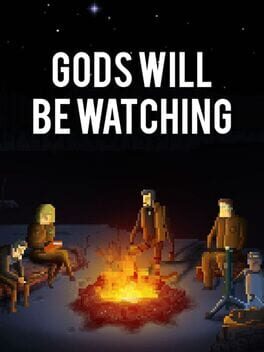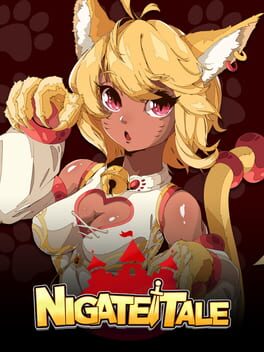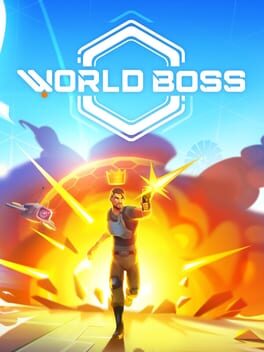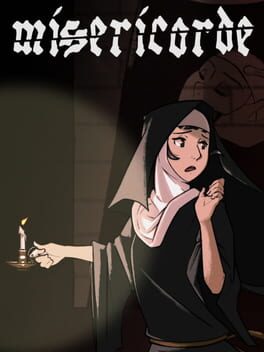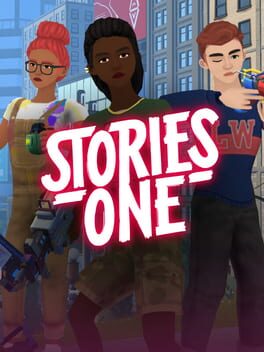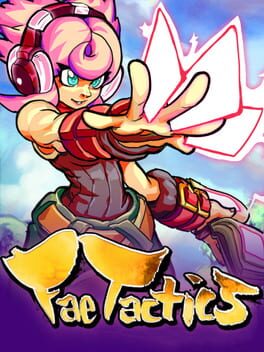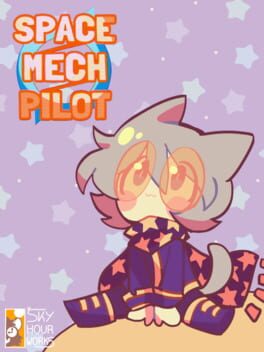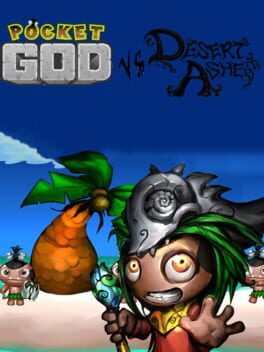umezono
Six years was worth the wait.
Granblue Fantasy: Relink helps scratch an itch for both fluid action combat mechanic and MMO-style boss mechanics. This is the perfect game for the era of live-service schlock- a flawlessly integrated online co-op ecosystem, with all its substantive content able to be fully enjoyed offline as well. The only way it could be fundamentally improved (outside of the crossplay issue) is allowing for LAN play- but that's sadly something of a dinosaur in today's AAA releases. Otherwise PlatinumGames, well known for its ability to translate beloved IPs to quality action games, has stuck the landing here.
Any Cygames veteran can attest to the quality that goes into each of their productions, but they somewhat fail to transcend their mobage framework. Granblue Fantasy (2014) proper is a ridiculously tedious grind, such that even spending tons of money doesn't fully circumvent it. Hidden deep within Granblue's stigma as a gacha game is actually an extremely in-depth JRPG storyline, to speak nothing of its combat mechanics and boss design. After several years, I couldn't be bothered to enjoy it anymore underneath the crushing daily grind- but there was so much to love about it. There was incredible art direction by the CyDesignation team (which also did similar fantastic work on Final Fantasy Brave Exvius: War of the Visions) and wonderful music by the likes of Nobuo Uematsu and Tsutomu Narita. A vast, well-established world and characters whom the team truly cared about, meticulously developing their stories and updating units. That is what makes Relink that much more special- seeing these characters and their various skillsets rendered beautifully and allowed to escape the small aspect ratio of the phone screen. Each respective character was brought to life here with a stunning attention to detail by PlatinumGames. And that's not to discount the wonderful job Arcsys did with Granblue Fantasy Versus, but the game is far more accessible to a wider audience. This is what helps bring this game from fan service to a niche base to something capable of engendering an entirely new audience to its universe.
Cygames was actually no stranger to highly-polished action combat either, with Dragalia Lost (2018) offering some of the best co-op boss raids for its respective platform. The gameplay loop in Dragalia was a cut above what most gacha shovelware was offering, and it had a similarly well-respected single player campaign to Granblue as well. Dragalia's end of service was a stinging loss to many people, but PlatinumGames has managed to deliver them from janky private servers. The boss mechanics are highly reminiscent of Dragalia's and serve as a worthy successor. It is pretty easy to pick up and play too. The only real hurdle Relink players will have getting started is wrangling the camera and targeting system, something Dragalia didn't really have to contend with due to its top-down perspective. I did get kind of frustrated with this at first, but it mostly boils down to a couple hours of experience to resolve. Kind of a Super Mario 64 situation, but a lot less egregious.
Everything in Relink just manages to feel right, and feel good. Surely it won't hit as hard with people who aren't interested with things like incremental mastery of the different characters' mechanics, or people who don't like seeing numbers go up. But there is a market for that, and its a big market if Monster Hunter's meteoric rise was any indication. Action game fans with no knowledge of the source material won't really find any of this too daunting either. The 10-15 hour initial campaign can be played and enjoyed standalone, and the combat itself is self-explanatory. I do recommend getting acquainted with the basic Granblue lore through the Lyria's note section (as well as the Fate Episodes) as it will help contextualize a lot of what people love about these characters and their world. The writing might be a little flowery in some parts, a little nekketsu in others, but overall its pretty good. I would consider Relink's story basically akin to a movie adaptation of an anime- with dubious implications as to the canon and basically non-consequential to the overall plot. It is thus pretty easy to just enjoy as its own thing.
Notably, it's kind of hilarious how Cygames integrated the source gacha's DNA into the UI, sometimes seemingly for the sake of it. It's never too intrusive and its really only there for the hardcore players, but it is still very funny to see cursed Granblue mechanics like Plus Marks, Over Mastery Bonuses, and Spellbooks in an action RPG title. They all work well enough though, and the difference-maker here is the pacing. Take the Treasure Trade and material system they transplanted from the gacha. The grind in OG Granblue for certain materials can take weeks, even months. In here, its just going to be a few hours at worst. Allowing one to enjoy all the aesthetics of Granblue without having to devote enough time for it to being a second job? I would have stuck out ten years for this.
Granblue Fantasy: Relink helps scratch an itch for both fluid action combat mechanic and MMO-style boss mechanics. This is the perfect game for the era of live-service schlock- a flawlessly integrated online co-op ecosystem, with all its substantive content able to be fully enjoyed offline as well. The only way it could be fundamentally improved (outside of the crossplay issue) is allowing for LAN play- but that's sadly something of a dinosaur in today's AAA releases. Otherwise PlatinumGames, well known for its ability to translate beloved IPs to quality action games, has stuck the landing here.
Any Cygames veteran can attest to the quality that goes into each of their productions, but they somewhat fail to transcend their mobage framework. Granblue Fantasy (2014) proper is a ridiculously tedious grind, such that even spending tons of money doesn't fully circumvent it. Hidden deep within Granblue's stigma as a gacha game is actually an extremely in-depth JRPG storyline, to speak nothing of its combat mechanics and boss design. After several years, I couldn't be bothered to enjoy it anymore underneath the crushing daily grind- but there was so much to love about it. There was incredible art direction by the CyDesignation team (which also did similar fantastic work on Final Fantasy Brave Exvius: War of the Visions) and wonderful music by the likes of Nobuo Uematsu and Tsutomu Narita. A vast, well-established world and characters whom the team truly cared about, meticulously developing their stories and updating units. That is what makes Relink that much more special- seeing these characters and their various skillsets rendered beautifully and allowed to escape the small aspect ratio of the phone screen. Each respective character was brought to life here with a stunning attention to detail by PlatinumGames. And that's not to discount the wonderful job Arcsys did with Granblue Fantasy Versus, but the game is far more accessible to a wider audience. This is what helps bring this game from fan service to a niche base to something capable of engendering an entirely new audience to its universe.
Cygames was actually no stranger to highly-polished action combat either, with Dragalia Lost (2018) offering some of the best co-op boss raids for its respective platform. The gameplay loop in Dragalia was a cut above what most gacha shovelware was offering, and it had a similarly well-respected single player campaign to Granblue as well. Dragalia's end of service was a stinging loss to many people, but PlatinumGames has managed to deliver them from janky private servers. The boss mechanics are highly reminiscent of Dragalia's and serve as a worthy successor. It is pretty easy to pick up and play too. The only real hurdle Relink players will have getting started is wrangling the camera and targeting system, something Dragalia didn't really have to contend with due to its top-down perspective. I did get kind of frustrated with this at first, but it mostly boils down to a couple hours of experience to resolve. Kind of a Super Mario 64 situation, but a lot less egregious.
Everything in Relink just manages to feel right, and feel good. Surely it won't hit as hard with people who aren't interested with things like incremental mastery of the different characters' mechanics, or people who don't like seeing numbers go up. But there is a market for that, and its a big market if Monster Hunter's meteoric rise was any indication. Action game fans with no knowledge of the source material won't really find any of this too daunting either. The 10-15 hour initial campaign can be played and enjoyed standalone, and the combat itself is self-explanatory. I do recommend getting acquainted with the basic Granblue lore through the Lyria's note section (as well as the Fate Episodes) as it will help contextualize a lot of what people love about these characters and their world. The writing might be a little flowery in some parts, a little nekketsu in others, but overall its pretty good. I would consider Relink's story basically akin to a movie adaptation of an anime- with dubious implications as to the canon and basically non-consequential to the overall plot. It is thus pretty easy to just enjoy as its own thing.
Notably, it's kind of hilarious how Cygames integrated the source gacha's DNA into the UI, sometimes seemingly for the sake of it. It's never too intrusive and its really only there for the hardcore players, but it is still very funny to see cursed Granblue mechanics like Plus Marks, Over Mastery Bonuses, and Spellbooks in an action RPG title. They all work well enough though, and the difference-maker here is the pacing. Take the Treasure Trade and material system they transplanted from the gacha. The grind in OG Granblue for certain materials can take weeks, even months. In here, its just going to be a few hours at worst. Allowing one to enjoy all the aesthetics of Granblue without having to devote enough time for it to being a second job? I would have stuck out ten years for this.
2021
2016
Kitfox Games' Moon Hunters just isn't up to par, both for it's time and today. There are surely good things to say about the game's grandiose pixel art aesthetic, which is right in line with indie darlings like Hyper Light Drifter and Dead Cells. There's some nice music, a well-constructed world that calls to mind both Sumerian and Mesopotamian mythology, and well-done environmental storytelling. Overall, it is an otherwise serviceable roguelite held by back by shallow combat and confusing narrative mechanics.
Pre-2016, the standout roguelites were games like The Binding of Isaac, Enter the Gungeon, Crypt of the Necrodancer, Relic Hunter Zero, and Nuclear Throne. While these games are quite distinct from Hunters mechanically, which pulls its combat from Diablo rather than something like Mystery Dungeon, they offered more emergent gameplay loops. In this game, there is a very basic skill tree and that is it. Beyond vapid stat upgrades with no appreciable effect on the gameplay loop or its difficulty, nothing changes for your character. Every fight boils down to just stunlocking enemies in place and spamming the primary attack until they are dead. The pace of combat is glacial, even at "normal" difficulty. It appears the developers made every single enemy a damage sponge because the game would be too easy otherwise.
Moon Hunters is moreso narrative-focused, with dialogue choices directly affecting the run (and having permanent effects on all future runs.) Kitfox's Tanya X. Short aimed to leverage the procedural generation to craft personal narratives, but the implementation is flawed at best. While I can appreciate the choices unlocking future characters or opening up the game world, it becomes very confusing when it starts to influence your player character.
Sometimes you will randomly be given a new trait ie. "Brave," "Vengeful,": etc. and this is straightforward enough, but its not immediately apparent how this affects anything. As it turns out, this will only affect subsequent dialogue choices and interactions, which is the core to the "replayability" of Moon Hunters. Each run would have the player approaching situations differently, thus unlocking new story routes. This is a strong point in the game's favor, but the problem is you would have to trudge through multiple runs of the same mind-numbing combat sequences to find that out. The game undercuts itself, as the story could get better, but the combat itself will never change.
Some mention must also be given to the game's poor implementation of co-operative multiplayer. Firstly, playing as a group breaks the combat loop and makes it even more tedious than it already is. Given that each character only gets three skills, and 4 small upgrades to each of those skills, it only takes around 15 minutes to find a combo that will trivialize every encounter (including all the bosses.) The narrative sections are also underwhelming in co-op; as for some reason each character can select an option, but this has zero bearing on the actual choice. The person who initiates the dialogue will always choose the outcome, and thus change the game state. The only agency the second player in this scenario gets is the potential of a new personality trait.
The potential was obviously there for a game like this, and in a scant few years titles like Children of Morta and Hades would find the sweet spot between narrative and gameplay that Moon Hunters failed to capture. Unfortunately, this only hurts any case you could make to give it time. As a complete experience, the game is unable to justify repeat playthroughs outside of a strong interest in its lore and worldbuilding. There could be a world out there to explore and love, if you are willing to sit there spamming left click all the way to end.
Pre-2016, the standout roguelites were games like The Binding of Isaac, Enter the Gungeon, Crypt of the Necrodancer, Relic Hunter Zero, and Nuclear Throne. While these games are quite distinct from Hunters mechanically, which pulls its combat from Diablo rather than something like Mystery Dungeon, they offered more emergent gameplay loops. In this game, there is a very basic skill tree and that is it. Beyond vapid stat upgrades with no appreciable effect on the gameplay loop or its difficulty, nothing changes for your character. Every fight boils down to just stunlocking enemies in place and spamming the primary attack until they are dead. The pace of combat is glacial, even at "normal" difficulty. It appears the developers made every single enemy a damage sponge because the game would be too easy otherwise.
Moon Hunters is moreso narrative-focused, with dialogue choices directly affecting the run (and having permanent effects on all future runs.) Kitfox's Tanya X. Short aimed to leverage the procedural generation to craft personal narratives, but the implementation is flawed at best. While I can appreciate the choices unlocking future characters or opening up the game world, it becomes very confusing when it starts to influence your player character.
Sometimes you will randomly be given a new trait ie. "Brave," "Vengeful,": etc. and this is straightforward enough, but its not immediately apparent how this affects anything. As it turns out, this will only affect subsequent dialogue choices and interactions, which is the core to the "replayability" of Moon Hunters. Each run would have the player approaching situations differently, thus unlocking new story routes. This is a strong point in the game's favor, but the problem is you would have to trudge through multiple runs of the same mind-numbing combat sequences to find that out. The game undercuts itself, as the story could get better, but the combat itself will never change.
Some mention must also be given to the game's poor implementation of co-operative multiplayer. Firstly, playing as a group breaks the combat loop and makes it even more tedious than it already is. Given that each character only gets three skills, and 4 small upgrades to each of those skills, it only takes around 15 minutes to find a combo that will trivialize every encounter (including all the bosses.) The narrative sections are also underwhelming in co-op; as for some reason each character can select an option, but this has zero bearing on the actual choice. The person who initiates the dialogue will always choose the outcome, and thus change the game state. The only agency the second player in this scenario gets is the potential of a new personality trait.
The potential was obviously there for a game like this, and in a scant few years titles like Children of Morta and Hades would find the sweet spot between narrative and gameplay that Moon Hunters failed to capture. Unfortunately, this only hurts any case you could make to give it time. As a complete experience, the game is unable to justify repeat playthroughs outside of a strong interest in its lore and worldbuilding. There could be a world out there to explore and love, if you are willing to sit there spamming left click all the way to end.
2023
At this point, I am convinced the bubble has burst for PVP-focused FPS like this. Outside of Fortnite's endless resources and Call of Duty's shambling corpse, it feels like literally nothing released since 2016 has managed to capture the public's imagination. These games look great, but they all look the same. They sometimes feel great, but they also always feel the same. These live service titles meant explicitly to court an eSports scene, complete with sponsors throwing cash at major events, are just doomed to fail now. The market is saturated; nobody cares about Battle Pass Season 5000 or how your heroes rate on the Blizzard diversity matrix. It's all been done so many times before. And most of us are tired of it.
For those looking for a bit more inspired recent titles, I can only really recommend Battlebit Remastered (which is explicitly supposed to be anathema to eSports focused titles) and Friends vs. Friends (a literally dead game, all in the span of a month or so). Otherwise, don't waste your time and just play Fortnite.
For those looking for a bit more inspired recent titles, I can only really recommend Battlebit Remastered (which is explicitly supposed to be anathema to eSports focused titles) and Friends vs. Friends (a literally dead game, all in the span of a month or so). Otherwise, don't waste your time and just play Fortnite.
2019
Rage 2 is so devoid of anything interesting, that I actually feel frustrated about it. Just a giant nothing burger of a game- an "open world" that nails the "post-apocalyptic" thing a bit too hard because there is seemingly no life whatsoever. Long sequences of driving, broken up by copy-pasted bandit camps that give you some ammo pick-ups and currency. I found the Borderlands 2 Circle of Slaughter rip-off especially bad. Fighting a grand total of 3 enemy types over and over, in small rooms, with your reward just being the opportunity to buy more ammo. What a snorefest.
1998
"The important thing for games is that they allow you to lose your sense of time. The better a game is, the more it does this and makes you feel like you’ve been playing a very long time each credit. I don’t say this because short play times are best for earning income..."
- Kouji Hiroshita, one of the main developers of Contra (1987)
The punishing run and gun platforming gameplay loop that was given life with Contra (1985), the profit motive of arcade game development, and Japanese cultural depictions of the "Wild West" of post-colonial nations all combine in Metal Slug and Metal Slug 2.
Metal Slug as a franchise is something I have considered to be style over substance, which isn't necessarily a bad thing. There are plenty of games where the main draw is being as flashy as possible, and the team at Nazca was doing it better than anyone else at the time. It is a masterpiece of sight and sound, albeit a flawed one.
The obvious issues that come with a modern appraisal of a game released several decades ago- unfair game design meant to extract as much money as possible from arcade patrons; the game itself being unable to handle all the particle effects and slowing down to below 15 FPS; the fact that this is simply an emulator running the game rather than a real PC port- it all takes a back seat to how amazing the game's art direction is. The gameplay itself is a frustrating mess, especially within the context of an arcade machine that requires credits. In comparison to many other staples, the room for error is especially small in Metal Slug 2. There were moment in the playthrough where the two lives you are given evaporated in under 2 minutes.
Yet, I could never imagine myself giving this a wide berth were it to appear one day at the local Round One or Dave & Busters. It is the same reason so many people cherish games like Street Fighter 2 and The Simpsons: you get a memorable experience regardless of how many credits you were willing to devote to it.
The level design is solid and delivers plenty of variation across its initial 5 stages (the final missions is a glaring exception.) The soundtrack is a home run, the boss fights are enjoyable for what they are and overall it delivers some truly hilarious moments- all strengths of the genre. Perhaps we look back upon these Japanese science fiction epics with a bit too much of a rose-tinted lens, but Metal Slug 2 is one of the more solid arcade titles of the era.
- Kouji Hiroshita, one of the main developers of Contra (1987)
The punishing run and gun platforming gameplay loop that was given life with Contra (1985), the profit motive of arcade game development, and Japanese cultural depictions of the "Wild West" of post-colonial nations all combine in Metal Slug and Metal Slug 2.
Metal Slug as a franchise is something I have considered to be style over substance, which isn't necessarily a bad thing. There are plenty of games where the main draw is being as flashy as possible, and the team at Nazca was doing it better than anyone else at the time. It is a masterpiece of sight and sound, albeit a flawed one.
The obvious issues that come with a modern appraisal of a game released several decades ago- unfair game design meant to extract as much money as possible from arcade patrons; the game itself being unable to handle all the particle effects and slowing down to below 15 FPS; the fact that this is simply an emulator running the game rather than a real PC port- it all takes a back seat to how amazing the game's art direction is. The gameplay itself is a frustrating mess, especially within the context of an arcade machine that requires credits. In comparison to many other staples, the room for error is especially small in Metal Slug 2. There were moment in the playthrough where the two lives you are given evaporated in under 2 minutes.
Yet, I could never imagine myself giving this a wide berth were it to appear one day at the local Round One or Dave & Busters. It is the same reason so many people cherish games like Street Fighter 2 and The Simpsons: you get a memorable experience regardless of how many credits you were willing to devote to it.
The level design is solid and delivers plenty of variation across its initial 5 stages (the final missions is a glaring exception.) The soundtrack is a home run, the boss fights are enjoyable for what they are and overall it delivers some truly hilarious moments- all strengths of the genre. Perhaps we look back upon these Japanese science fiction epics with a bit too much of a rose-tinted lens, but Metal Slug 2 is one of the more solid arcade titles of the era.
There are times where we have to admit that sometimes a game isn't for everyone. This is one of those times. Gods Will Be Watching draws heavily from classic LucasArts point-and-clicks, but this is purely window dressing. What lies beneath is a masochistic exercise almost unlike any other game I have ever played, in which the puzzle sequences involve extreme micromanagement in order to avoid crashing headfirst into the game's many, many fail states.
Nothing is explained, so the best way to describe it is "meter management." Take the hostage situation in Chapter 1. Every interactable entity is a potential timebomb waiting to send you back to the start, and you must efficiently sequence your actions to avoid this. Indications that things are about to go horribly wrong are very rarely overt. A hostage might say "I need to run" which signals that you need to beat them up and keep them in line, but more likely it's a barely noticeable shift in their posture. You have 4 hostages that you need to juggle, with tons of options in how to handle them, and no way of judging the efficacy of said options without (imo) tens to hundreds of attempts. This approach to trial and error would make NES developers combust instantly.
But, I get it. Micromanagement can be fun, theoretically. I myself have never been partial to it, but I can see the appeal of this sort of application of the formula. High stakes situations where you cannot afford to be hard or soft, forced to make split second decisions lest everything burns to ashes. Fun! An adrenaline junkie's dream. Let's take it a step further then: you also need to deal with things failing because of completely random events out of your control.
This is the "intended vision" the developers had for Gods, per the description of the default difficulty level. The hostage situation can go to shit because something goes entirely wrong with zero indication. It's just out of your control. And you would have no way of knowing that. If you claimed that you understood intrinsically what's up to random chance and what's not, I would just not believe you. You would need some sort of telepathic link with the game, or something. During my dozens of attempt, I have no idea whether or not I was playing it wrong or I just got screwed over. The game is not even content in cold indifference- it gives you an analysis of your actions at the end. I was "too soft." Alright, sure, maybe? I kicked the shit out of innocent hostages and even shot one in the leg, but I also calmed them down cause the game explicitly told me to make sure they don't freak out. How do I know whether or not I'm being too soft? How do I know it's not because one of them just randomly snapped? I wasn't going to stick around and find out- but suffice to say, I find the ranking system obnoxious and poorly explained.
It's just not my thing. I spoke about this somewhat in a prior review of For The King": I don't think difficulty through random chance is compelling difficulty. So, when I consider that this is the intended mode of play from the developers, I already know I am not in the target audience for this game. Overall, it does feel a bit like an ivory tower I couldn't scale. I am okay with admitting that I probably don't have the right stuff for this game, but I am similarly okay with saying I don't find this sort of thing appealing.
There are alternate difficulties that either remove the random elements or allow you to just enjoy the narrative. I'll be honest, I wasn't interested enough in the narrative to want to do that- because I couldn't get past the first chapter in however many hours I spent, so I had no damn idea what was going on outside of the opening cutscene. It's a nice cutscene, sure. There is a compelling premise to it- but that's just it. It's a premise and then I had to play through a RNG-fest meter management simulation and fail 50 times with no idea if I am improving or what. So I have no compulsion to just play the narrative mode, cause I wasn't sufficiently hooked by what I had already played. It could be great, in fact I'm sure it is based on several reviews I've seen. Yet, I was already turned off.
There is also the puzzle mode, which just offers the puzzle aspect with no element of random chance. Ultimately, the core gameplay loop just wasn't satisfying. For much the same reason I have never been into real-time strategy games, I don't personally enjoy a mix of heavy attention to detail with time constraints. It's something that asks for specific things from specific people, and I feel like I'd need to pop several Adderall in order to be that specific person.
While it is obvious to me that Gods Will Be Watching is a competently constructed game, I have come to terms with the fact I just don't like this sort of game design. It is deeply cynical at best, malicious at worst. I know it's all in service of the narrative, and I know people find value in difficult games like this. More power to you, if you do.
Nothing is explained, so the best way to describe it is "meter management." Take the hostage situation in Chapter 1. Every interactable entity is a potential timebomb waiting to send you back to the start, and you must efficiently sequence your actions to avoid this. Indications that things are about to go horribly wrong are very rarely overt. A hostage might say "I need to run" which signals that you need to beat them up and keep them in line, but more likely it's a barely noticeable shift in their posture. You have 4 hostages that you need to juggle, with tons of options in how to handle them, and no way of judging the efficacy of said options without (imo) tens to hundreds of attempts. This approach to trial and error would make NES developers combust instantly.
But, I get it. Micromanagement can be fun, theoretically. I myself have never been partial to it, but I can see the appeal of this sort of application of the formula. High stakes situations where you cannot afford to be hard or soft, forced to make split second decisions lest everything burns to ashes. Fun! An adrenaline junkie's dream. Let's take it a step further then: you also need to deal with things failing because of completely random events out of your control.
This is the "intended vision" the developers had for Gods, per the description of the default difficulty level. The hostage situation can go to shit because something goes entirely wrong with zero indication. It's just out of your control. And you would have no way of knowing that. If you claimed that you understood intrinsically what's up to random chance and what's not, I would just not believe you. You would need some sort of telepathic link with the game, or something. During my dozens of attempt, I have no idea whether or not I was playing it wrong or I just got screwed over. The game is not even content in cold indifference- it gives you an analysis of your actions at the end. I was "too soft." Alright, sure, maybe? I kicked the shit out of innocent hostages and even shot one in the leg, but I also calmed them down cause the game explicitly told me to make sure they don't freak out. How do I know whether or not I'm being too soft? How do I know it's not because one of them just randomly snapped? I wasn't going to stick around and find out- but suffice to say, I find the ranking system obnoxious and poorly explained.
It's just not my thing. I spoke about this somewhat in a prior review of For The King": I don't think difficulty through random chance is compelling difficulty. So, when I consider that this is the intended mode of play from the developers, I already know I am not in the target audience for this game. Overall, it does feel a bit like an ivory tower I couldn't scale. I am okay with admitting that I probably don't have the right stuff for this game, but I am similarly okay with saying I don't find this sort of thing appealing.
There are alternate difficulties that either remove the random elements or allow you to just enjoy the narrative. I'll be honest, I wasn't interested enough in the narrative to want to do that- because I couldn't get past the first chapter in however many hours I spent, so I had no damn idea what was going on outside of the opening cutscene. It's a nice cutscene, sure. There is a compelling premise to it- but that's just it. It's a premise and then I had to play through a RNG-fest meter management simulation and fail 50 times with no idea if I am improving or what. So I have no compulsion to just play the narrative mode, cause I wasn't sufficiently hooked by what I had already played. It could be great, in fact I'm sure it is based on several reviews I've seen. Yet, I was already turned off.
There is also the puzzle mode, which just offers the puzzle aspect with no element of random chance. Ultimately, the core gameplay loop just wasn't satisfying. For much the same reason I have never been into real-time strategy games, I don't personally enjoy a mix of heavy attention to detail with time constraints. It's something that asks for specific things from specific people, and I feel like I'd need to pop several Adderall in order to be that specific person.
While it is obvious to me that Gods Will Be Watching is a competently constructed game, I have come to terms with the fact I just don't like this sort of game design. It is deeply cynical at best, malicious at worst. I know it's all in service of the narrative, and I know people find value in difficult games like this. More power to you, if you do.
2021
This game just received a substantial update to its code, upon which the developers are hoping to add additional content. I decided to give it a chance, because I had dropped it almost immediately due to performance issues. This is as standard as a procedurally generated action RPG can get, and it's not worth getting into the weeds over its mechanics as they have been done countless times before (and better). The localization is just barely there, so you can understand the systems and it overall plays smoothly enough to be a passable Hades clone... that is, until the last boss where my FPS dropped from a stable 200 to 40 and it became unplayable, and my run ended. Given this issue, I see no reason to continue playing at the moment. In the event the developers optimize it, I'll come back and give it another shot. Until then, it's a skip.
2022
A perfect storm of the horror lurking just behind the corner and the ugliness that lays just behind a person's true feelings. Perhaps the most gothic thing I have ever had the pleasure of experiencing. The greater mystery within Misericorde is given foundation, but Volume One serves mostly as an introduction to the complex, flawed actors. Everything is carefully crafted right down to certain lines that receive no further attention.
As a period piece, it is made to be accessible as possible to the reader in service of the overall narrative - this works in Misericorde's favor as a piece about a 1400s priory could easily be impenetrable. The dark setting of the abbey is truly one of the scariest things I have ever seen in a game- the black and white imagery lends to a giallo aesthetic that is sublime. Also, this has one of the best soundtracks ever.
And xeecee's philosophical explorations of the time period have now engrossed me: the demerits of literalism (biblical or otherwise), class in the gothic era, how theology and sexism intertwine in this sort of monastic process... a truly fantastic game that has gotten me doing my research. Can't wait for Volume 2.
Edit: The dialogue in this game- as mentioned before- is made to be accessible as possible to read. This means the game overall bucks authenticity in favor of better animating the character's personality. The characters speak modern english, in the sort of timeless tradition of graphic novels and media that takes a similar approach. This can serve to break the immersion, but for me, it worked 90 percent of the time. There is one scene where the characters get into a debate about ducks that didn't really work for me, but otherwise, its good stuff.
As a period piece, it is made to be accessible as possible to the reader in service of the overall narrative - this works in Misericorde's favor as a piece about a 1400s priory could easily be impenetrable. The dark setting of the abbey is truly one of the scariest things I have ever seen in a game- the black and white imagery lends to a giallo aesthetic that is sublime. Also, this has one of the best soundtracks ever.
And xeecee's philosophical explorations of the time period have now engrossed me: the demerits of literalism (biblical or otherwise), class in the gothic era, how theology and sexism intertwine in this sort of monastic process... a truly fantastic game that has gotten me doing my research. Can't wait for Volume 2.
Edit: The dialogue in this game- as mentioned before- is made to be accessible as possible to read. This means the game overall bucks authenticity in favor of better animating the character's personality. The characters speak modern english, in the sort of timeless tradition of graphic novels and media that takes a similar approach. This can serve to break the immersion, but for me, it worked 90 percent of the time. There is one scene where the characters get into a debate about ducks that didn't really work for me, but otherwise, its good stuff.
2023
2020
Even though I initially played for about 20 hours, lost interest and dropped it to rot my brains playing Apex Legends and other such dopamine addiction fixes, I knew this was an extremely good game from what I did experience. I recently returned to it, sunk another 20+ hours in and realized that Fae Tactics is easily one of the best indie offerings to the genre because it is unapologetically itself.
Many of the prominent indie titles of the past decade (Symphony of War, Fell Seal: Arbiter's Mark, Dark Deity, etc.) have kept their influences closely abreast as the tactics genre can best be described as "burgeoning" on PC. As a style of gameplay, SRPGs are quite niche. So understandably, the best route to more players will have these developers jockeying to give us the next FFT or Fire Emblem on PC, titles that have long been relegated to consoles. Many of these games are straight up unplayable without emulation, though the increased popularity of PC gaming and Square Enix's embrace of such has given the true believers a chance to revisit the classics (still no Final Fantasy Tactics remaster or port, though..) But the library of PC SRPGs has been steadily growing, thanks to lower barriers to entry.
Endlessfluff's Fae Tactics is in fact a port of an Xbox game, but it is very much in the new tradition of the PC indies I listed, a new-school SRPG developed by fans who grew up on the classics and hope to bring the genre to new audiences. But Fae is a somewhat stark departure from many of the others. While we have come to be used to the high fantasy environment and Japanese anime-inspired artstyles ushered in by the predecessors, Fae Tactics visual signature is far more distinct. It has the colorfulness and whimsicality of EndlessFluff's earlier work in titles like Valdis Story, bringing to life its various characters and biomes with an aesthetic similar to Ralph Bakshi's artistic direction in Wizards (1977). The emphasis on color and distinct sihouettes allows EndlessFluff's artist CaroMoya to transcend the rather generic art styles of its contemporaries and focus on designs that communicate personality, environment and race. And shoutouts to Sam English's wonderful score for further bringing this game to life.
The comparison to Wizards is apt beyond just the art style; as it brings together the same thematic and narrative elements as well- a world that has been reclaimed by the magical fae after a cataclysmic event; natural elements allowed to spread unhindered by human technological advancement but still coming into conflict with that which has been left behind, like scars that threaten to be reopened.
Fae Tactic's experimental heart permeates every aspect of its SRPG foundations; you're not playing a bishonen royal prince with a small company of knights in this game. Its main character is a precocious young witch in a world that fears her very existence and your initial companions are a bird with water magic and... a dog. (Shoutouts Faerghast, you did it first) Peony is a lovely character; instantly recognizable by her bright design and personality. Each new character you meet have their hearts and minds slowly opened by her unflinching altruism and childlike innocence, I could only join them in being won over. I was laughing every time she got embarrassed; felt my heart melting every time she cried. One of my favorite protagonists by a very, very long shot. Truly, women are powerful and Peony is the most powerful.
Fae Tactics also has an unconventional approach to how it develops its narrative. The game itself operates on a week-based calendar, with the passage of time affecting things like access to certain areas or quest timers. This works well for me, as it allows me to tackle the campaign at your own leisure. Generally speaking, until the lategame there will always be 2 or more major quests to challenge. So if you're struggling with one, you can just play another or do some "free matches" to farm scrolls. Thanks to each weekday being represented by an element, the system has strong ludonarrative significance with each day buffing its corresponding element.
This game flew under the radar if there ever was one, so finding information and discussion on this game was somewhat tasking. If there is a common sentiment I have seen about Fae Tactics, cribbed together from various posts through the years I have managed to find floating about the ether, it is that the game can sometimes present an unfair challenge. This is an interesting dynamic when you start to consider how pared down the actual combat mechanics are on the surface. You only have three actions: attack, assist buff or wait (self-buff). Further, Square Enix set a benchmark for build complexity with Final Fantasy Tactics by which most hardcore SRPG fans will anchor their expectations. Subsequent games within the genre focused heavily on customizability within your army. The ability to modify your units to your preferences with things like skill trees, inheritances, reclassing is now genre standard. Fae Tactics chooses to trade in some of that build complexity for a more streamlined experience- there is a smaller scope of progression for units outside of the basic stat modifiers as you level up. The main characters (dubbed "Leader Units") have all their passives by default and can only change these passives through very limited customization options. For example, Peony can swap between three different weapons, each bestowing her new element and some different passives.
Apart from Leader units, there is also a monster-collection subsystem in the game in which killing certain enemies bestows you summon cards, allowing you to bring up to three additional units to the fight. These monsters are a case of "what you see is what you get," their passives are set and only base stats can be augmented via scrolls. Thusly, the importance is placed on the team composition that will utilize these monsters to maximum efficacy. In addition, the monster collecting process is a welcome diversion from progressing the story- with rare monsters to hunt only available in certain locations on certain days. Satoshi Tajiri, eat your heart out.
Fae arguably succeeds in streamlining the process, as builds are much simpler and straightforward and the much of the "planning" phase instead centers around macro-level strategy. Rather than spending hours tweaking individual values on the characters, you instead match teams based on elemental affinities and passives that "combo" together well. Thus combat is focused how well you effectuate these combos, and the inability to optimize will significantly contribute to the difficulty.
The difficulty of the game boils down to two factors: 1) the enemy level scales with the highest level member of your party (and since she is mandatory for every encounter, that is almost always going to be Peony unless you intentionally do not use her) and 2) the enemy has access to the same powerful offensive and defensive buffs you do, often multiplied to insane values. Bosses in this game can easily stack upwards of 200+ defense, high amounts of damage reduction, and will one shot you if you are not properly built to take their hits.
The solution to this, however, is actually quite simple thanks to the nature of the game's overall mechanics. You pick the element that is advantaged, equip and upgrade things that will buff that element, and take advantage of the "weekday" you are choosing to fight. Even though the bosses may sit across the map permanently buffing themselves until you reach them, I have yet to meet a challenge that was insurmountable during my playthrough. There's always clear answers to specific enemy tactics, ie. you have an enemy stacking defense buffs? Bring defense imperils. The level scaling makes things difficult, but imo it also keeps things fair. The enemy keeps pace with you statwise, and can easily destroy you if your plan of action isn't solid- and I think this overall creates a satisfying level of challenge in which you cannot simply dominate the enemy on stat differential alone. And to be sure, there are very, very broken passives in this game (Protector, I am looking at you) that can make even the most impossible-seeming scenarios in this game doable. But I can hardly call this a demerit. The greatest games in the genre have been deconstructed ad infinitum to come up with strategies that trivialize the hardest content; for me, this is part of the allure of the strategy RPG.
Then, my major criticism can mostly be boiled down to technical deficiencies that came with it being ported from consoles to PC; but for the most part these can be overlooked. The game has too much going for it for any of my criticisms to diminish the overall experience.
Fae Tactics does things different, it plays with its food and is focused on innovation and expressing itself over sticking hard and fast to the classics. This experimentation is only to the games benefit, its missteps end up being more interesting than something like Dark Deity's most faithful and successful recreations of the formula. We need more games in the genre like this that seek to push boundaries, rather than reify them.
Many of the prominent indie titles of the past decade (Symphony of War, Fell Seal: Arbiter's Mark, Dark Deity, etc.) have kept their influences closely abreast as the tactics genre can best be described as "burgeoning" on PC. As a style of gameplay, SRPGs are quite niche. So understandably, the best route to more players will have these developers jockeying to give us the next FFT or Fire Emblem on PC, titles that have long been relegated to consoles. Many of these games are straight up unplayable without emulation, though the increased popularity of PC gaming and Square Enix's embrace of such has given the true believers a chance to revisit the classics (still no Final Fantasy Tactics remaster or port, though..) But the library of PC SRPGs has been steadily growing, thanks to lower barriers to entry.
Endlessfluff's Fae Tactics is in fact a port of an Xbox game, but it is very much in the new tradition of the PC indies I listed, a new-school SRPG developed by fans who grew up on the classics and hope to bring the genre to new audiences. But Fae is a somewhat stark departure from many of the others. While we have come to be used to the high fantasy environment and Japanese anime-inspired artstyles ushered in by the predecessors, Fae Tactics visual signature is far more distinct. It has the colorfulness and whimsicality of EndlessFluff's earlier work in titles like Valdis Story, bringing to life its various characters and biomes with an aesthetic similar to Ralph Bakshi's artistic direction in Wizards (1977). The emphasis on color and distinct sihouettes allows EndlessFluff's artist CaroMoya to transcend the rather generic art styles of its contemporaries and focus on designs that communicate personality, environment and race. And shoutouts to Sam English's wonderful score for further bringing this game to life.
The comparison to Wizards is apt beyond just the art style; as it brings together the same thematic and narrative elements as well- a world that has been reclaimed by the magical fae after a cataclysmic event; natural elements allowed to spread unhindered by human technological advancement but still coming into conflict with that which has been left behind, like scars that threaten to be reopened.
Fae Tactic's experimental heart permeates every aspect of its SRPG foundations; you're not playing a bishonen royal prince with a small company of knights in this game. Its main character is a precocious young witch in a world that fears her very existence and your initial companions are a bird with water magic and... a dog. (Shoutouts Faerghast, you did it first) Peony is a lovely character; instantly recognizable by her bright design and personality. Each new character you meet have their hearts and minds slowly opened by her unflinching altruism and childlike innocence, I could only join them in being won over. I was laughing every time she got embarrassed; felt my heart melting every time she cried. One of my favorite protagonists by a very, very long shot. Truly, women are powerful and Peony is the most powerful.
Fae Tactics also has an unconventional approach to how it develops its narrative. The game itself operates on a week-based calendar, with the passage of time affecting things like access to certain areas or quest timers. This works well for me, as it allows me to tackle the campaign at your own leisure. Generally speaking, until the lategame there will always be 2 or more major quests to challenge. So if you're struggling with one, you can just play another or do some "free matches" to farm scrolls. Thanks to each weekday being represented by an element, the system has strong ludonarrative significance with each day buffing its corresponding element.
This game flew under the radar if there ever was one, so finding information and discussion on this game was somewhat tasking. If there is a common sentiment I have seen about Fae Tactics, cribbed together from various posts through the years I have managed to find floating about the ether, it is that the game can sometimes present an unfair challenge. This is an interesting dynamic when you start to consider how pared down the actual combat mechanics are on the surface. You only have three actions: attack, assist buff or wait (self-buff). Further, Square Enix set a benchmark for build complexity with Final Fantasy Tactics by which most hardcore SRPG fans will anchor their expectations. Subsequent games within the genre focused heavily on customizability within your army. The ability to modify your units to your preferences with things like skill trees, inheritances, reclassing is now genre standard. Fae Tactics chooses to trade in some of that build complexity for a more streamlined experience- there is a smaller scope of progression for units outside of the basic stat modifiers as you level up. The main characters (dubbed "Leader Units") have all their passives by default and can only change these passives through very limited customization options. For example, Peony can swap between three different weapons, each bestowing her new element and some different passives.
Apart from Leader units, there is also a monster-collection subsystem in the game in which killing certain enemies bestows you summon cards, allowing you to bring up to three additional units to the fight. These monsters are a case of "what you see is what you get," their passives are set and only base stats can be augmented via scrolls. Thusly, the importance is placed on the team composition that will utilize these monsters to maximum efficacy. In addition, the monster collecting process is a welcome diversion from progressing the story- with rare monsters to hunt only available in certain locations on certain days. Satoshi Tajiri, eat your heart out.
Fae arguably succeeds in streamlining the process, as builds are much simpler and straightforward and the much of the "planning" phase instead centers around macro-level strategy. Rather than spending hours tweaking individual values on the characters, you instead match teams based on elemental affinities and passives that "combo" together well. Thus combat is focused how well you effectuate these combos, and the inability to optimize will significantly contribute to the difficulty.
The difficulty of the game boils down to two factors: 1) the enemy level scales with the highest level member of your party (and since she is mandatory for every encounter, that is almost always going to be Peony unless you intentionally do not use her) and 2) the enemy has access to the same powerful offensive and defensive buffs you do, often multiplied to insane values. Bosses in this game can easily stack upwards of 200+ defense, high amounts of damage reduction, and will one shot you if you are not properly built to take their hits.
The solution to this, however, is actually quite simple thanks to the nature of the game's overall mechanics. You pick the element that is advantaged, equip and upgrade things that will buff that element, and take advantage of the "weekday" you are choosing to fight. Even though the bosses may sit across the map permanently buffing themselves until you reach them, I have yet to meet a challenge that was insurmountable during my playthrough. There's always clear answers to specific enemy tactics, ie. you have an enemy stacking defense buffs? Bring defense imperils. The level scaling makes things difficult, but imo it also keeps things fair. The enemy keeps pace with you statwise, and can easily destroy you if your plan of action isn't solid- and I think this overall creates a satisfying level of challenge in which you cannot simply dominate the enemy on stat differential alone. And to be sure, there are very, very broken passives in this game (Protector, I am looking at you) that can make even the most impossible-seeming scenarios in this game doable. But I can hardly call this a demerit. The greatest games in the genre have been deconstructed ad infinitum to come up with strategies that trivialize the hardest content; for me, this is part of the allure of the strategy RPG.
Then, my major criticism can mostly be boiled down to technical deficiencies that came with it being ported from consoles to PC; but for the most part these can be overlooked. The game has too much going for it for any of my criticisms to diminish the overall experience.
Fae Tactics does things different, it plays with its food and is focused on innovation and expressing itself over sticking hard and fast to the classics. This experimentation is only to the games benefit, its missteps end up being more interesting than something like Dark Deity's most faithful and successful recreations of the formula. We need more games in the genre like this that seek to push boundaries, rather than reify them.
2020
Space/Mech/Pilot is extremely basic, even for an idle game; its attempt to use the medium to tell a complex narrative fails when the gameplay does not evolve past the first few upgrades. It works, but it doesn't really leave any impact. With its "social link" mechanic and narrative centered around plucky feline companion, it similarly fails to capture OneShot's magic.
Just a bit of QOL would've improved the experience, such as a way to view gameplay statistics. As is, the replay value is low to nonexistent- I am playing the Itch build, which does not have achievement support, while the Steam build offers an achievement centered around replaying the game for a high score. I didn't even know about that until I looked it up.
Just a bit of QOL would've improved the experience, such as a way to view gameplay statistics. As is, the replay value is low to nonexistent- I am playing the Itch build, which does not have achievement support, while the Steam build offers an achievement centered around replaying the game for a high score. I didn't even know about that until I looked it up.
